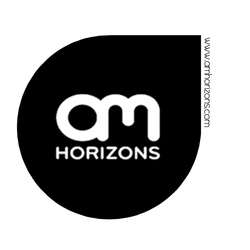RACIAL EQUITY LENSDIVERSITY AND INCLUSION ASSESSMENT

Why Do an Assessment?
There are a number of reasons to conduct a Diversity and Inclusion assessment, often called a "Corporate Culture Audit", one of the most important is to examine the systemic ways that an organization is validating individuals, creating equitable and inclusive environments, and staying on course with its core values. This examination will help determine how welcoming the organization is to minorities, women, people of color and a diverse religious groups and will help determine the success of these groups. We all have been indoctrinated by the societies from which we come from. It is clear that our up bringing and socialization has had an impact on our paradigms and the thought of changing these norms can be overwhelming. Because of this it can be said that we all have adapted to the bias of our cultural or governmental groups. Organizations are no different, they are made of people who have been exposed to limited or misguided educational experiences full of gaps, bias history and incomplete stories. With this in mind we suggest that these assessments be done prior to an act of discrimination, bigotry, homophobic or sexist incident occurring. The knee jerk response to "fouls" committed in the work place rips away any chance of authentic learning and makes the re-learning of new skills difficult. An assessment provides data that will aid in creating action plans, bolstering equity policies, affirming institutional structures, expanding educational frameworks and establishing interventions that help to build the capacity of the organization to better serve clients and establishing a learning nurturing environment for staff and employees. Our Fees Our fees are on a sliding scale based on the breath and depth of the assessment process, the organization size and the methods selected for data collection. An 8 Hour one shot session with a limited scope (one work group) is $2500 which includes both formal and informal interviews with a 10 page report. An organizational wide assessment depending on the scope could range between $15,000-$30,000. The size of the organization, the scope and the number of work groups will help to determine that overall cost of this type of intervention. The organizational assessment comes with a full documentation of methods, recommendations and a 20 page document on CD to be shared with others. The Assessment Approach Our approach to climate assessment is unique in several ways: We work to provide a framework that support the personal experiences, stories and focus group experiences with empirical data gathered through surveys, data collection protocols to provide a number of practical, research based best practices the will increase your organizations effectiveness. The focus group protocols and survey are developed with your input, the organizations culture in mind as well as looking at the appreciate models for collecting data,conducting interviews and building partnerships. It our aim to build a tool that is easy to apply and one that meets your specif needs
We use a number data gathering methods Your organization provide information is a number of different ways and mediums and so it important to use a variety of methods to collect data. We will work with you to create a collaborative process that meets and build on your organizations natural cultural norms. Our gathering process can be broken down into 2 parts Ethnographic and Political observations Ethnographic Observations These observation help us get a "feel" for the norms, both written and unwritten, of the organizations. These activities collect the reality and the perceptions of the people that are in the organizations, those served by the organization and the constituents that have a direct stake in the advancement of the organization.
Political In the part of our data collection we will examine policies and procedures and look for the ipmact they have on increasing or decreasing inequity in the organizations. Typically organizations do not look at their policies witha diversity and inclusion lens , this often lead to unintended adverse impacts.
Sample Fees
|
Racial Equity ToolkitWhat is a Racial Equity Lens?
A “racial equity lens” brings into focus the ways in which race and ethnicity shape access to goods, jobs, services, money and power. It provides a focus on how systemic racism has limited access to opportunity, treatment, and outcomes, both today and historically. Racial Equity Lens allows organizations to analyze Policies or Program that have a racial impact on the distribution of benefits or burdens. This can include work on many levels, such as:
|
- Welcome
- Welcome 2023
- Speaker Request
- Contact Us
- The Center Page
- AMH ONLINE
- AMH Home
- Services
- Media
- Our Approach
- Outline
- SPECIALS
- Newspaper
- Infographics
- Methods for Change
- Store
- Downloads: Race
- Servant Leadership
- PRESENTATIONS
- Voice Thread
- Let's Keep Talking
- library_app
- Staff Training
- 2021 Home
- DEI Challenge Badge
- More Perfect Union
- New assessment

